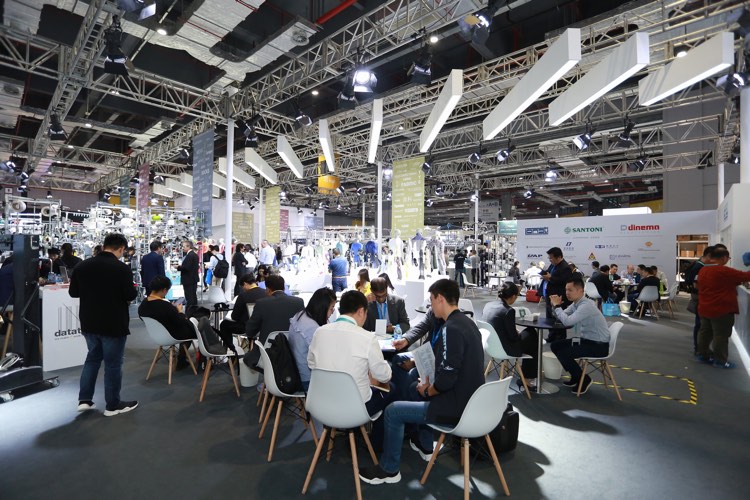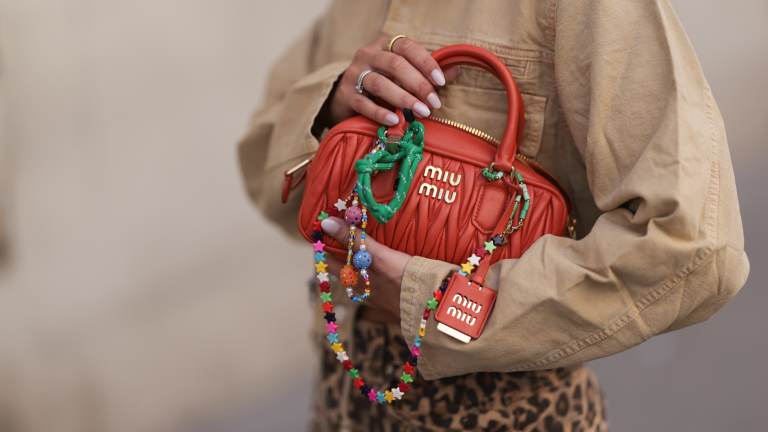FW

US Polo Assn, a global brand synonymous with sporty elegance, has secured a prestigious win at the 2024 Global RLI Awards, held in London. Recognized for its remarkable growth in emerging markets, particularly India, the brand is poised to become a billion-dollar powerhouse in the world's second-most populous nation.
A winning strategy for the Indian market
This multifaceted approach has been key to US Polo Assn's success in India. With over 400 stores across 200 cities, and plans for further expansion, the brand has established a strong brick-and-mortar presence. Recognizing the growing importance of e-commerce, US Polo Assn. launched a dedicated website, USPoloAssn.in, catering specifically to Indian customers and simplifying online shopping.
To connect with Indian consumers on a deeper level, US Polo Assn. has partnered with prominent personalities like His Highness Maharaja Sawai Padmanabh Singh (Pacho) of Jaipur, fashion icon Palak Tiwari, and celebrity models Arjun Rampal and MilindSoman. These partnerships create a sense of cultural resonance and brand aspiration.
Global exposure with a local touch
US Polo Assn has leveraged its international presence to further its Indian success. With a landmark multi-year deal with ESPN and Star Sports, the brand brings the thrill of world-class polo championships directly to Indian audiences. This strategy not only reinforces the brand's connection to its sporting roots but also strengthens its appeal amongst sports enthusiasts in the country.
A celebration of global recognition
J Michael Prince, President & CEO of USPA Global, expressed pride in US Polo Assn's recognition as Emerging Market Retailer of the Year. He stated that winning this award and being a finalist for International Retailer of the Year highlights the global team's commitment to connecting with consumers and creating a significant market impact.
US Polo Assn.'s win at the RLI Awards is a testament to its successful adaptation to evolving markets. By staying true to its sporting heritage while embracing modern trends, the brand has carved a niche for itself in the hearts of Indian consumers. With its commitment to quality, style, and cultural connection, US Polo Assn is well on its way to achieving its billion-dollar milestone in India.
Making its debut at the exhibition, elastic manufacturing company, Rainbow Industries showcased an extensive collection of elastic products at GTE 2024 in Bengaluru.
Known for its specialisation in smoking elastics, Rainbow Industries caters to a variety of sectors, including footwear, gloves, and socks manufacturing. The company also showcased its Lycra elastic and fabric dory solutions, among other innovative products.
Emphasising on the company’s commitment to quality and environmental responsibility, Rajan Batra, Director, Rainbow Industries, says, its OEKO-TEX certification ensures its elastics adhere to stringent safety standards, providing manufacturers with a high-quality, eco-friendly choice.
This was Rainbow Industries’ first exhibition in South India, allowing the company to explore new markets and connect with potential customers. The unique smoking elastics attracted significant attention from attendees, highlighting the company’s distinctive offerings.
During discussions with a delegation from a textile management and engineering consulting firm, Gherzi, Kamran Arshad, Central Chairman, All Pakistan Textile Mills Association (APTMA), emphasised on the importance of a large-scale collaboration in fiber recycling and renewable energy to strengthen Pakistan’s textile exports, generate employment, and drive economic growth. A strategic partnership with Gherzi could help advance Pakistan's economic objectives, Arshad affirmed.
He highlighted, APTMA member mills have already made strides in sustainability by adhering to both international and local standards. Pakistan’s textile industry is planning to establish 1,000 garment factories with a $7 billion investment, aiming to increase exports to $50 billion, create 700,000 jobs, and generate an annual output of $20 million per plant.
Sharing insights on the anticipated slowdown in global garment production growth, Giuseppe Gherzi, Managing Partner, Gherzi advised industry leaders to remain agile and embrace emerging trends to maintain competitiveness. He outlined 34 transformative trends affecting the textile industry, emphasising, adaptation to these shifts is essential for companies aiming to stay competitive and sustainable.
Influenced by technological advancements, sustainability concerns, and evolving market demands, the textile sector would undergo considerable transformation by 2030, Gherzi projected. He noted, the rising significance of recycling will help brands connect with synthetic fiber producers, with several companies investing in innovative recycling technologies.
He also highlighted Galy Co, a biotech firm leading in sustainable cotton production, which recently raised $33 million in an oversubscribed Series B funding round. Galy’s method involves cultivating stem cells from cotton plant varieties in labs using bioreactors, eliminating traditional farming requirements.
Emphasising on need for brands to adapt to shifting market realities and innovate to foster growth, Gherzi noted, ultra-fast fashion is intensifying competition, requiring traditional fast-fashion leaders to innovate. Additionally, the global apparel resale market is rapidly expanding, with projections suggesting it could reach $350 billion by 2028.

ITMA ASIA + CITME 2024 concluded on 18 October, drawing approximately 90,000 visitors across five days at the National Exhibition and Convention Centre (NECC) in Shanghai. The event, which covered 160,000 square meters and showcased innovations from over 1,700 textile machinery manufacturers, saw robust attendance from both domestic and international audiences.
Notably, Chinese visitors comprised 87 per cent of the attendance, representing 31 provinces and cities, with Jiangsu, Zhejiang, Shanghai, and Guangdong topping the list. This strong turnout highlighted China’s significant interest in textile machinery advancements.
Global audience with India leading overseas attendance
Visitors from 111 countries and regions attended, marking a diverse international presence. India led the overseas visitors, followed by South Korea, Bangladesh, Indonesia, and Iran, underscoring Asia’s expanding role in the global textile machinery market. Organizers, including CEMATEX, CCPIT TEX, CTMA, and CIEC, expressed satisfaction with the turnout and quality of the interactions at the event.
Exhibitors applaud market opportunities and engagement
Many exhibitors reported successful outcomes, lauding the quality of leads and market potential ITMA ASIA + CITME offered. Federico Businaro from Sperotto Rimar noted that the event reaffirmed its importance for the Chinese market, generating substantial leads and prospective sales.
Rick Stanford, VP Global Business Development at Baldwin Technology Company, echoed these sentiments, highlighting that their participation yielded ‘better than expected results’ with excellent visitor engagement.
Demand for advanced and intelligent machinery
Chinese exhibitors observed growing demand for advanced, automated machinery. Changshu Guosheng Knitting Machinery Factory’s General Manager, Tan Jingdan, shared that customers were specifically interested in fully computerised machines, leading to multiple orders on the first day. This trend reflects a broader shift toward high-end, intelligent textile solutions as companies position themselves for growth.
Reflecting on the event's impact, Stephan Kehry, International Sales Manager for Erhardt+Leimer’s Textile Division, emphasized the importance of quality and innovation for competitive advantage. He noted that ITMA ASIA + CITME successfully demonstrated that companies focused on these elements are well-positioned to thrive amidst rising competition.
Future events in Singapore and Shanghai
Following this year’s success, ITMA ASIA + CITME Singapore 2025 is scheduled for 28-31 October at the Singapore Expo, marking the event’s first move outside China. ITMA ASIA + CITME will return to NECC in Shanghai from 20-24 November 2026, continuing its mission to bring industry leaders together and promote technological advancements in textile machinery.
Marking a setback for its top investor Frasers, which had pushed for its controlling shareholderto assume the position, British online fashion retailer Boohoo has appointed Dan Finley as its new CEO. Currently leading Boohoo’s digital department store unit, Debenhams, Finley will replace John Lyttle.
Under Finley’s leadership, Debenhams achieved an annual gross merchandise value (GMV) run rate of about £800 million ($1.03 billion) due to a capital-light and cash-generative model.
Analysts at Jefferies noted,this GMV exceeded their earlier estimate of around £400 million. In response to Frasers’ recent proposals, Boohoo expressed willingness to discuss board representation but emphasised the need for ‘appropriate governance’ to safeguard its commercial interests, highlighting Frasers’ existing 23.6 percent stake in ASOS, a direct competitor.
Having made significant investments in UK brands including Mulberry and AO World, Frasers had also invested £150 million in Debenhams before its 2021 collapse, after which Boohoo acquired the brand out of administration.
Lectra projects revenues will increase to €600 million in 2025, with the brand expecting to generate€400 million from recurring business. The company also expects EBITDA margin to exceed 20 per cent.
A French company specialising in industrial intelligence solutions for the fashion, automotive, and furniture sectors, Lectra’s revenues increased by 11 per cent in Q3. On a Y-o-Y basis, the brand’s revenues grew by 10 per cent to €394.2 million.
Over the first nine months, Lectra's EBITDA increased to €68.5 million from €59.2 million during the same period last year, with EBITDA margin rising from 16.5 per cent to 17.4 per cent.The brand registered a worsened a macroeconomic and geopolitical landscape in the third quarters, with impacts varying across different regions and sectors.
The environment led to the brand’s making cautious investment decisions, negatively impacting orders for new systems.
Lectra’s revenue from perpetual licenses for software, equipment, and other services remained constantat €106.3 million during the first nine months, in line with last year's figures. Orders for new licenses grew by 4 per cent to €8 million.
On Oct 9, Lectra launched its new AI-driven software, Valia Fashion, at its site in Cestas, near Bordeaux. This software integrates all Lectra solutions for production planning and enables precise predictions of material needs for each collection, promising increased efficiency for fashion industry clients.
Just few days after Pakistani textile exporter, Ghazi Fabrics International announced a partial halt at its weaving unit, another company Janana De Malucho Textile Mills (JDMT) also suspended production, citing severe economic challenges, rising energy costs, and a lack of affordable, high-quality cotton.
The company notified the Pakistan Stock Exchange (PSX) of this decision in compliance with Sections 96 and 131 of the Securities Act, 2015, and Clause 5.6.1 (a) of the PSX Regulations. JDMT stated that it can no longer sustain production due to adverse economic conditions, escalating power costs, limited availability of quality cotton at reasonable prices, and decreasing sales. Additionally, it cited an accumulation of finished goods as the yarn market slows down.
Established in 1960 as a public company under the Companies Act, JDMT specialises in producing super-fine counts of 80s and 100s combed and carded yarn, using extra-long staple cotton sourced from the US and CIS countries. It also produces premium 40/s and 60/s combed yarn for air-jet looms. While the company has suspended production temporarily, management emphasised its commitment to monitor the situation and resume operations when conditions improve.
The cotton crisis in Pakistan is deepening, with data from the Pakistan Cotton Ginner’s Association (PCGA) revealing a significant decline in cotton arrivals. By Sep-end, total arrivals in the country declined by 59 per cent Y-o-Y to 2.04 million bales as against 5.025 million bales in the same period in 2023. This shortage is exacerbating challenges for the textile industry, a key sector in Pakistan's economy.
Expanding the Uyghur Forced Prevention Act (UFLPA) Entity List, US Department of Homeland Security (DHS) has added 78 companies from the People’s Republic of China including several textile manufacturers to it. This helpsthe department prevent import of goods produced through forced labor, specifically from companies associated with Uyghur labor in the Xinjiang region.
Among the listed companies include prominent textile firms such as Esquel Group, Guangdong Esquel Textile Co, and Turpan Esquel Textile Co. The new regulations empower the US Customs and Border Protection (CBP) to bar entry of products produced by these companies. Changji Esquel Textile Co also faces restrictions as it has been removed from Section One of the UFLPA list, effectively banning its goods from the U.S. market.
Alejandro N. Mayorkas, Secretary, DHS, emphasises, the list plays a pivotal role in helping American businesses maintain ethical supply chains and remain free from forced labor.Expansion of the list also enables American businesses better assess their supply chains and ensure they do not profit, directly or indirectly, from the use of forced labor, he adds.
Robert Silvers, Under Secretary-Policy and Chairman, Forced Labor Enforcement Task Force, affirms, the administration is committed to strengthening accountability across global supply chains.
Since its inception in December 2021, the UFLPA Entity List has grown to include companies across multiple industries, from agriculture to electronics, aiming to hold the PRC accountable for alleged human rights abuses and forced labor practices targeting Uyghurs and other minority groups in the Xinjiang Uyghur Autonomous Region (XUAR). The expansion of this list underscores the US stance against forced labor and its dedication to supporting Uyghurs and other affected groups in East Turkistan.
Vietnam’s cotton imports increased to $1.309 billion during Jan to May’24, as per the newly released ‘Vietnam Cotton Import Research Report 2024-2033’by ResearchAndMarkets.com.In In 2023, Vietnam recorded cotton imports worth $2.744 billion.
Currently, cotton production across the globe is dominated by China, the United States, India, Brazil, and Australia, with China, India, and the US being the most influential players in the cotton market. Highest demand for cotton is generated from the Asia and Western markets with demand in the emerging markets also being driven by economic development and increasing income levels.
Southeast Asia's fast-growing economy and the world’s second-largest textile exporter, Vietnam is heavily dependent on cotton imports due to limited domestic production, which fulfills only around 1 per cent of the country’s demand. The country is currently the world’s third-largest cotton importer, with import values in the billions annually. It mostly imports cotton from the United States, Australia, Brazil, China, and Singapore.
From 2021-24, Vietnam sourced most of its cotton fromthe US, Australian, and Brazilian exporters including Sunray Macao Commercial, Bros Macao Commercial Offshore And Louis Dreyfus Company Suisse SA.Some of the major Vietnamese cotton importers included Brotex (Vietnam) Co, Texhong Galaxy and Texhong Yinlong Technology.
With the continued growth of Vietnam’s textile industry, demand for high-quality, stable cotton supplies is expected to rise as Vietnam upgrades its textile production and expands internationally. The report forecasts an upward trend in cotton import volumes as the industry seeks to meet both domestic and international demand.

Miu Miu has dethroned Loewe to become the hottest brand in the world, according to the latest Lyst Index released recently. The quarterly ranking, which analyzes the online shopping behavior of millions of consumers, reveals the most sought-after brands and products across the globe.
Miu Miu's resurgence can be attributed to a 30 per cent quarter-on-quarter increase in searches for the brand, driven by its distinctive "alt-girl" aesthetic and popular items like the $3,050 Arcadie bag, which ranked as the fourth hottest product this quarter.
Miu Miu has consistently captured the zeitgeist with its playful and subversive designs, points out Lyst's Chief Insights Officer. "The brand's ability to connect with Gen Z and millennial consumers through social media and celebrity endorsements has been key to its success."
Loewe, which briefly held the top spot in Q2, slipped to second place, while Prada maintained its position in third. Saint Laurent and Alaïa rounded out the top five, with the latter making a significant leap of 12 places thanks to the enduring popularity of its fishnet ballet flats.
Table: Top 10 hottest brands
|
Rank |
Brand |
|
1 |
Miu Miu |
|
2 |
Loewe |
|
3 |
Prada |
|
4 |
Saint Laurent |
|
5 |
Alaïa |
|
6 |
Bottega Veneta |
|
7 |
Jacquemus |
|
8 |
Gucci |
|
9 |
The Row |
|
10 |
Valentino |
Alaïa's ascent
One of the most notable shifts in the Index is the rise of Alaïa, which jumped 12 places to claim the fifth spot. This surge in popularity is largely due to the creative direction of Pieter Mulier, who has revitalized the brand while honoring its heritage.
"Mulier's collections have struck a chord with consumers who appreciate the sensuality and craftsmanship of Alaïa," notes a fashion analyst at Lyst. "The brand's iconic fishnet ballet flats, which topped the hottest products list this quarter, have become a must-have item for fashion enthusiasts."
The Lyst Index also highlighted the growing influence of sportswear brands, with Nike and Adidas climbing the rankings. This trend is driven by the increasing popularity of athleisure and the blurring lines between sportswear and high fashion.
Sneaker wars heat up
The report also revealed the hottest products of the quarter, with Alaïa's fishnet ballet flats taking the top spot. However, sneakers made a strong showing, with Puma's Speedcat – seen on celebrities like Dua Lipa and Emily Ratajkowski – claiming third place following a 532 per cent spike in demand.
"The Speedcat's success demonstrates the power of celebrity endorsement and the enduring appeal of retro-inspired designs," notes Lubin. "It's a classic case of a heritage product being rediscovered and reinterpreted for a modern audience."
Other notable trends include the continued popularity of suede accessories, with Coach's Brooklyn shoulder bag and Miu Miu's Arcadie bag ranking second and fourth respectively.
Key trends
Retro revival: The Lyst Index highlights a growing interest in retro-inspired fashion, with items like Alaïa's fishnet flats and Coach's Brooklyn suede shoulder bag proving particularly popular.
Quiet luxury: Brands like The Row and Bottega Veneta, known for their understated elegance and high-quality materials, continue to resonate with consumers seeking timeless pieces.
Sportswear influence: Ralph Lauren's rise in the rankings reflects the ongoing influence of sportswear on luxury fashion.
As the fashion industry enters the final quarter of 2024, it remains to be seen whether Miu Miu can maintain its momentum. However, with its strong brand identity and innovative designs, the Italian fashion house is well-positioned for continued success.












